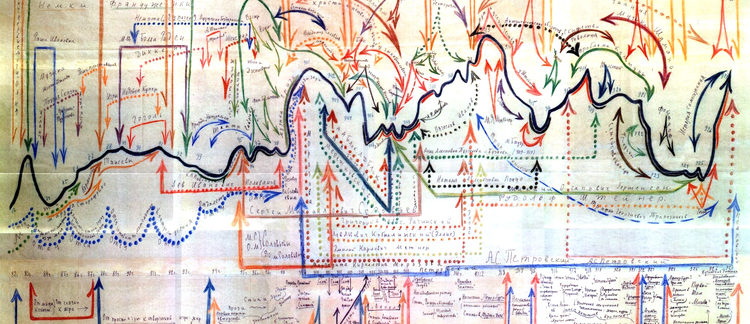In his book Foucault, first published 1986 in French, Gilles Deleuze claims that "Foucault is not only an archivist in the manner of Gogol, or a cartographer in the manner of Chekhov, but a topologist in the manner of Bely in his great novel Petersburg" (trans. Seán Hand, Minneapolis 1988, p. 119). Why should Foucault's late work, to which Deleuze is referring in the quote, be a "topology"? And how is this connected to Bely's modernist novel from 1913/14? In order to illuminate these questions, the collection "Topologies of Experience," edited by Simon Ganahl and Elena Vogman, collects research both on Foucault's spatial approaches and on literary topographies.
Research
Der monströse Fouleuze: Eine philosophische Lektüre von Andrej Belyjs Petersburg
Simon Ganahl
2017-01-20 Volume 3 • Issue 1 • 2017 • 1–11
Also a part of:
Dynamographie: Andrej Belyjs rhythmische Figuren
Elena Vogman
2016-12-15 Volume 2 • Issue 1 • 2016 • 1–17
Also a part of:
Räume der Existenz / Buchstaben des Begehrens: Foucault, Lacan und das Subjekt des Diskurses
Maurice Erb
2017-02-06 Volume 3 • Issue 1 • 2017 • 1–16
Also a part of:
Das relationale Apriori Wiens / Das städtische Apriori des Relationalismus: Stadt, Raum und Text in Robert Musils Mann ohne Eigenschaften
Gottfried Schnödl
2016-12-15 Volume 2 • Issue 1 • 2016 • 1–14
Also a part of:

